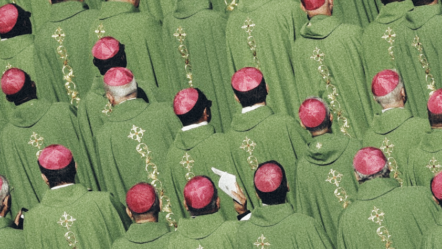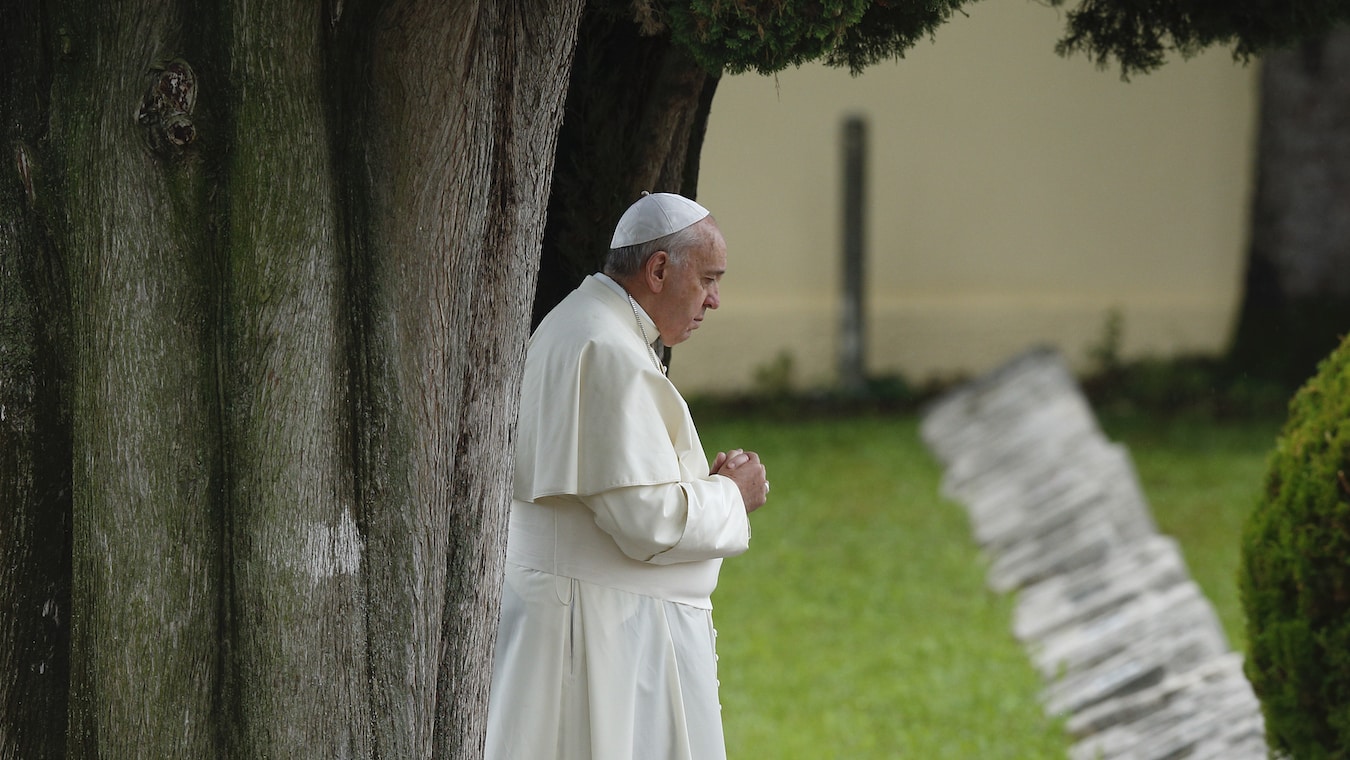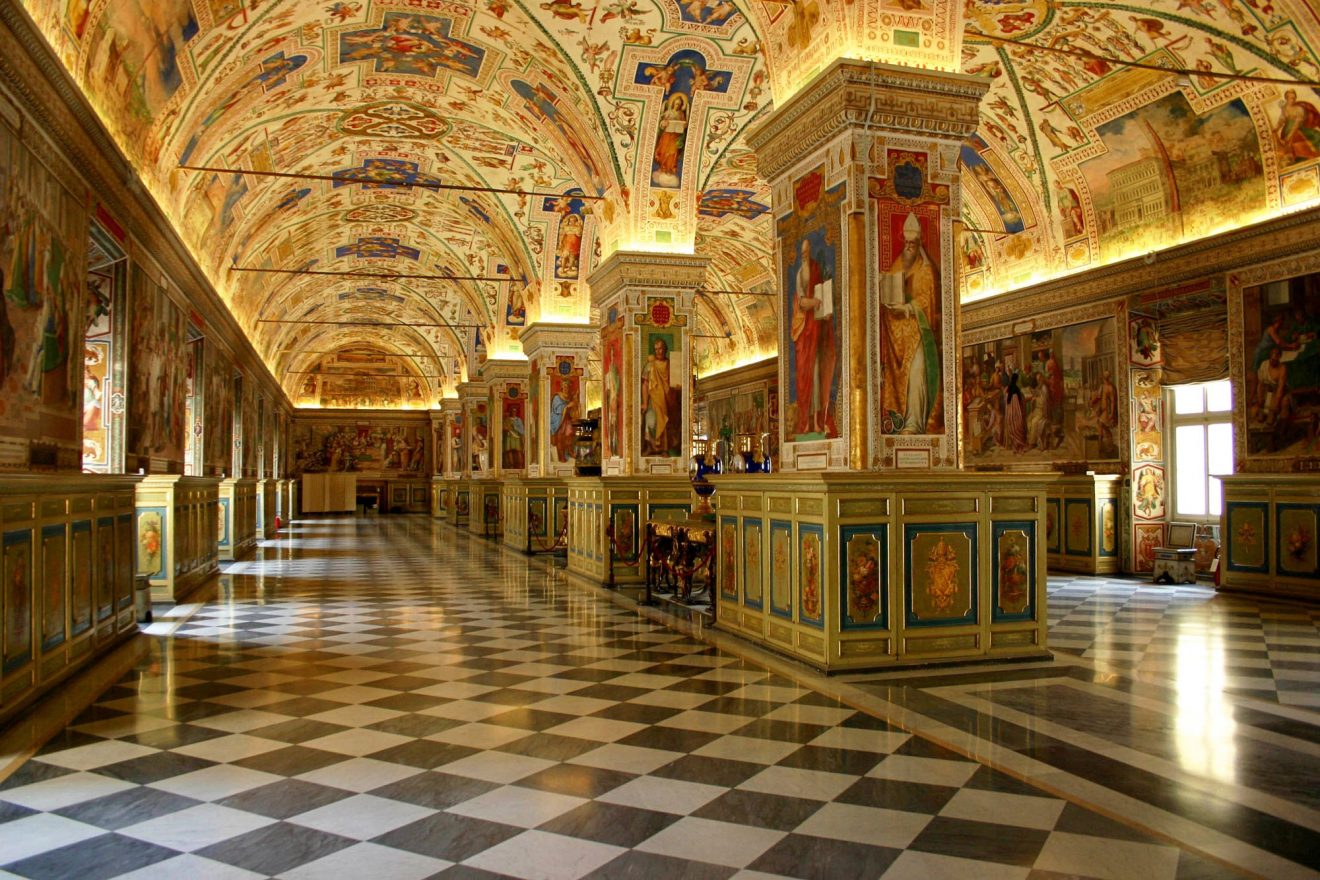In a recent essay I explained that America’s intellectual and moral decline can be reversed by restoring the ideas and practices foolishly discarded in recent decades—the belief that all humans are imperfect; that good and evil (sin and virtue) are real choices with real outcomes; that morality and truth are not created but discovered; and that the key to a satisfying life is to strive for self-improvement.
That essay focused on restoring traditional values in individual lives. This essay will consider whether the Catholic Church (and other churches) can help that effort. Some readers will think, “Of course the Church can do more than help. It can play a leadership role.”
That seems a very sensible response. However, it ignores the fact that the Church contributed to America’s decline by embracing the very ideas and practices that have caused it, in particular the Humanistic Psychology (HS) of Carl Rogers and Abraham Maslow. Church officials’ intentions were surely good because they believed that HS was consistent with Catholic teaching. But that was a serious mistake that was underlined years later by Maslow in this 1962 notebook comment published many years later: “[I] reflected on a talk that evening to hundreds of Catholics. ‘They shouldn’t applaud me––they should attack. If they were fully aware of what I was doing, they would.’”
Maslow’s influence on Catholics was great, but Rogers’ was even greater, as his chief associate, William Coulson, detailed in “The Story of a Repentant Psychologist,” He admitted that “We corrupted a whole raft of religious orders on the west coast in the ’60s by getting the nuns and priests to talk about their distress. . .We overcame their traditions, we overcame their faith.”
The religious orders Coulson was referring to include the Jesuits, the Franciscans, the Sisters of Providence of Charity, the Mercy Sisters, and the Immaculate Heart of Mary (IHM) Sisters. The HS “encounter” leaders began with the Jesuits and, as the Jesuit historian Joseph Becker confirmed later, between 1965 and 1975 “Jesuit training virtually fell apart.” Even more effective was the impact on the IHM’s, whose order was essentially destroyed.
Coulson makes clear that Humanistic Psychology “didn’t have a doctrine of evil.” Accordingly, they taught the nuns, priests, and others, “What’s deepest within you. . . are certain unrequited longings,” and that what they had been told was evil was really not evil.” As a result, he says, “we provoked an epidemic of sexual misconduct among clergy and [their] therapists.”
Coulson added, sorrowfully, “Humanistic psychotherapy, the kind that has virtually taken over the Church in America and dominates so many aberrant education [ideas] like sex education, and drug education, holds that the most important source of authority is within you, [and] that you must listen to yourself.”
Let me be clear. As Coulson and others have noted, Humanistic Psychology’s influence was not only on Catholicism. It was also on Protestantism, other religions, and certainly on many secular organizations. Nevertheless, the influence on the Catholic Church was arguably the most significant. After all, Catholicism has the longest philosophical and theological tradition (except for Judaism) and the largest gathering of scholars in Christian history.
What is truly baffling, however, is that despite having that foundation of faith, many in the hierarchy were willing to deny Original Sin, the imperfection of humankind, and the reality of evil, and to embrace mindless selfism, evidently for no other reason that it was presented as scientific truth. The simple question, “Is it true?” followed by rigorous examination would have revealed it to be unscientific nonsense. Yet they apparently never asked that question.
Beyond the bafflement is the disheartening realization that this madness in the Church was not a passing aberration. It took root and contributed to what Father Andrew Greeley called the Lavender Mafia that gained control of a number of seminaries, the molestation of children by priests, the even more despicable coverup by members of the hierarchy, and the unavoidable distrust of the clergy all this produced in the laity.
Thus, it is reasonable to wonder whether the Catholic hierarchy can play a significant role in restoring the intellectual and moral teachings it supported for centuries but replaced in the last half-century. They will first have to admit to themselves that they (and/or their predecessors) were foolish to falter in their beliefs, and then try to overcome whatever influence the false views have had on their judgments over the years This may sound like a form of confession, and it is! It is also precisely what is necessary to restore their credibility with the laity.
Unfortunately, for the better part of 2000 years Church leaders have had great difficulty admitting their errors. They have instead maintained the conviction that, for the good of the Church, they must pretend they are never mistaken. (At times they have put aside that pretense, but the basic pattern has varied little.) Yet simultaneously, they have preached the contradictory view that humility and truth-telling are virtues.
Our religious leaders should show us, by precept and example, how to live as God wishes in the age we live in. Those last words, the age we live in, are critical. Although all ages have many responsibilities in common—doing good and avoiding evil, honoring our parents, working, raising children, helping those in need—the challenge of doing so varies from age to age as the circumstances of human life change. Our leaders must therefore not just remind us of the general responsibilities of all ages, but also focus on the specific responsibilities of the present age.
In other words, Catholic leaders must not be content reciting the wonderful parable of the Good Shepherd guarding his flock from the metaphorical wolves who would kill them. They must, more importantly, warn their own flocks of the specific and real present dangers that threaten their minds and souls. And they must do this not just in occasional pronouncements from offices far removed from the people, but also from regular messages from every pulpit in their dioceses.
The very thought of using the pulpit in this way is, of course, anathema. Discussing political issues from the pulpit is considered a violation of the separation of church and state, and could result in the loss of the Church’s tax-free status. That warning has been most helpful for politicians. To strike fear into the hearts of the clergy, they need only say that an issue is a “political matter” rather than a religious one. But that notion is essentially false. Though it would be inappropriate to use the pulpit to campaign for a party or candidate–“The Bishop Says Vote for O’Reilly”–it is completely appropriate to say or even shout from the pulpit, “The Bible does not forbid a country from having borders.” My point is that any matter involving right and wrong is as much an ethical and therefore religious (theological) matter as a political one. Furthermore, using the pulpit to state the Church’s teaching on such matters is not just a right, but a moral imperative! Church leaders need to understand this, ignore politicians’ intimidation, and be bold in supporting truth and condemning evil.
With these facts in mind, we can confidently answer the question posed by my title. YES, the Church can indeed help restore America’s values. What remains to be seen is whether it will have the wisdom and the courage to do so.
Copyright © 2023 by Vincent Ryan Ruggiero. All rights reserved.








